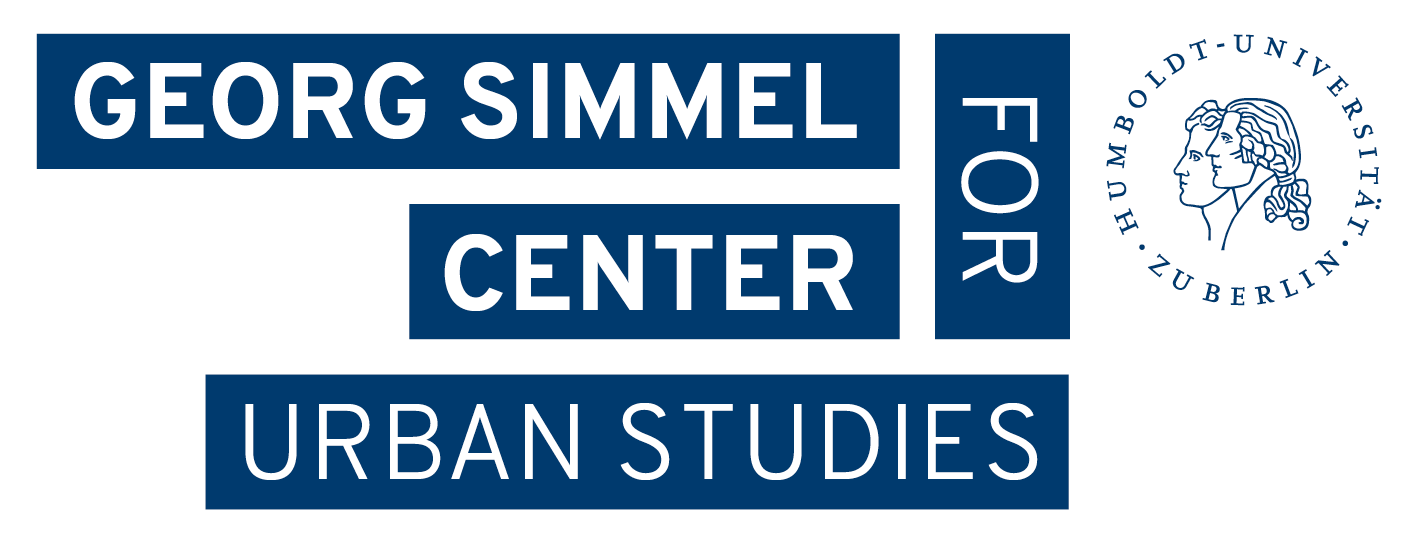Georg-Simmel Center for Urban Studies
One of the key aims of the Georg-Simmel Center for Urban Studies is to foster an international network of academic departments and other institutes that are active in metropolitan researches. Currently, the Geography Department, the Institute of European Ethnology and the Institute of Sociology are the foundation of the Georg-Simmel Center. The center is also intended to refer to current issues of urban politics, planning and to contribute to these in multiple ways, for example, through the organization of academic events or publication of specialized papers.
News

Tarde, a handbook of minimal and irrelevant urban entanglements
Tarde, https://www.tarde.info, is a bimonthly, and printed publication independently produced by GSZ researcher Santiago Orrego, supported by the Georg-Simmel Center, and initially distributed around Berlin. Its scope is to delve into those often taken-for-granted elements and associations happening in the streets.
The first number of Tarde, Glitch infrastructures, will be available around the Center, the Free University of Berlin, and the Technical University of Berlin from 11.09 while fanzines last.
The thematic Workshop takes place from December 5.–7. 2023 and is organised by the Urban Futures at Risk research group as part of the Georg-Simmel Center for Metropolitan Studies, Humboldt University Berlin. Please click here for the call and further informations.
Talja Blokland talks about the New Year's Eve incidents in Berlin in an interview with the Berliner Zeitung. Click here for the interview.
The collection is primarily aimed at students who would like to be inspired about topics, questions and methods in the context of their own final thesis.
The database was created as part of a GSZ project funded by the HU Academic Senate's programme for digital media in research, teaching and studies.
UrbanOpen can be found under the following link.
Interview by the rbb with Prof. Dr Talja Blokland on the pandemics consequences on Berlin and its inhabitants
Where many people live close together, the virus spreads particularly quickly, they say. The rbb asked: What is it like to live under these conditions in a Neukölln social housing neighborhood? Urban sociologist Talja Blokland says: We should definitely not get used to empty streets.
The interview can be heard here.
Scientific Advisory Board
The Council of the GSZ has decided to establish a scientific advisory board, which is responsible for our Centre in the near future.
GSZ goes Twitter
The Georg-Simmel-Center is now on Twitter! Visit our new account and follow to always stay up to date with our work.
Urban sociological voices on the Corona crisis
In an interview for the Berliner Zeitung ("Großsiedlungen: Hier treffen Ausgangsbeschränkungen die Berliners besonders hart") and in the Urban Political Podcast ("Inequalities of the Lockdown"), Prof. Dr. Talja Blokland spoke about the effects of the Corona crisis in the city.
Events
In cooperation with the Department of Urban and Regional Sociology, our Think and Drink Colloquium takes place every semester, where national and international scholars speak on various topics of urban research.
More information about this semester's speakers under the following link: Think & Drink Colloquium
Institute Colloquium European Ethnology
Every Tuesday, members of the department of European Ethnology present and discuss their current projects.
The current program can be found here.

